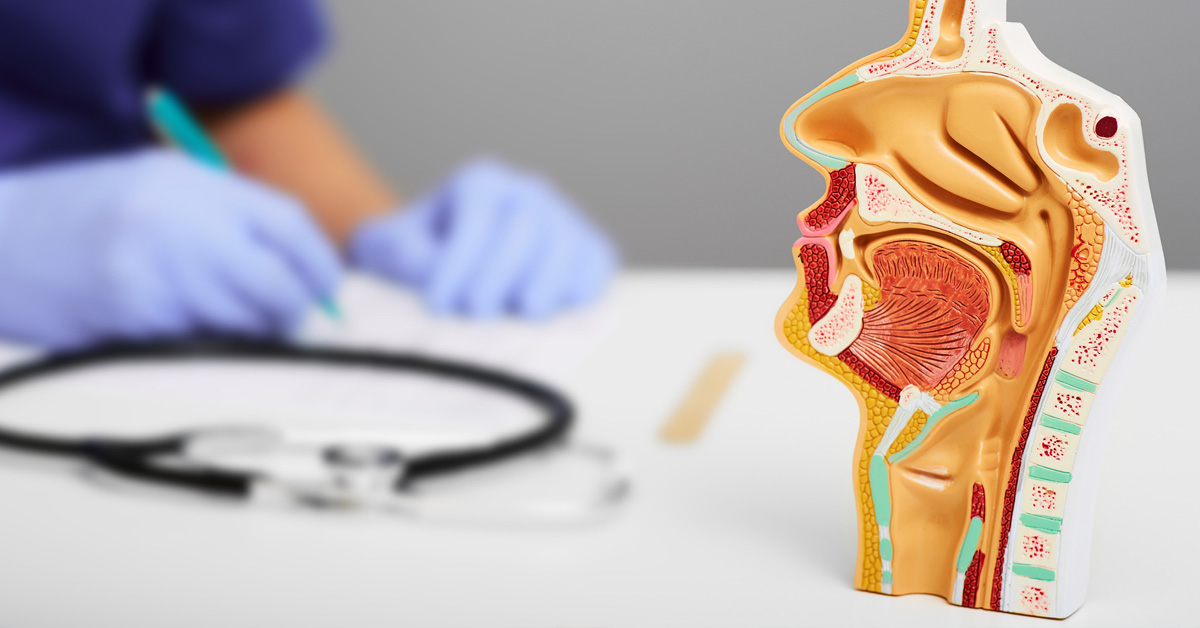Discovering the Field of Otolaryngology: What to Expect When You Get In Touch With an ENT
Otolaryngology, generally referred to as ENT, includes the diagnosis and therapy of throat, nose, and ear conditions. ENT Clinic. For those experiencing relevant problems, consulting an ENT expert can provide clearness and relief. Recognizing what to expect during such examinations is essential for effective communication and treatment. This review will outline crucial facets of the ENT experience, consisting of common reasons for brows through and the processes involved in diagnosis and therapy
Understanding Otolaryngology: An Overview
Otolaryngology, usually referred to as ENT (Throat, nose, and ear) medication, is a specific branch of medication that concentrates on the diagnosis and therapy of problems influencing these important areas of the human body. This area includes a vast array of conditions, consisting of those pertaining to hearing, balance, breathing function, and speech. Otolaryngologists are trained to handle both medical and clinical therapies, using innovative strategies and technologies. Their know-how prolongs beyond typical disorders, dealing with problems such as allergic reactions, sinus infections, and hearing loss. In addition, they play an essential duty in the management of head and neck cancers cells, offering complete treatment tailored to private client demands. On the whole, otolaryngology continues to be essential for maintaining health and lifestyle in damaged people.
Typical Reasons to See an ENT Expert
Numerous individuals look for the competence of an ENT expert for a variety of factors, showing the diverse nature of conditions that influence the throat, nose, and ear. Usual concerns consist of chronic sinus problems, which usually brings about relentless nasal blockage and facial discomfort. Allergic reactions and their associated signs and symptoms, such as itching and sneezing, also trigger check outs to these specialists. Hearing loss, whether sudden or gradual, is an additional significant reason for appointment. Additionally, people might seek assessment for throat problems, consisting of consistent hoarseness or ingesting difficulties. Rest apnea, characterized by disturbed breathing during rest, is regularly attended to by ENT experts also. Each of these conditions highlights the significance of specialized treatment in managing complicated ENT-related wellness concerns.
Preparing for Your ENT Visit
When planning for an ENT visit, it is vital to collect pertinent info and consider any type of certain problems. Individuals should compile an in-depth case history, consisting of previous ear, nose, or throat problems, surgical treatments, and existing drugs. Documenting signs and symptoms-- such as duration, frequency, and intensity-- can provide valuable understandings for the ENT specialist. Additionally, people must prepare a checklist of inquiries they want to ask, making sure that all problems are resolved throughout the visit. Bringing along any relevant medical documents or examination outcomes can even more assist the ENT in understanding the patient's problem. Ultimately, people ought to validate their visit details, consisting of time, place, and date, to lessen any last-minute confusion. Appropriate preparation can boost the efficiency of the examination and lead to far better outcomes.

What to Anticipate During the Consultation
As the assessment begins, the person can anticipate to participate in a comprehensive discussion with the ENT expert regarding their signs and symptoms and case history. The professional will certainly ask about the duration, frequency, and seriousness of signs such as hearing loss, nasal blockage, or sore throat. Additionally, the client's previous clinical conditions, drugs, and any appropriate household history will be examined, helping the expert in creating a complete understanding of the patient's wellness. The ENT might likewise ask concerning way of living aspects, such as direct exposure to irritants or toxic irritants. This open dialogue establishes a structure for the appointment, making certain that the patient's issues are dealt with and establishing the stage for any necessary evaluations or referrals for treatment.
Analysis Tests and Treatments in Otolaryngology
A series of analysis tests and procedures are important in otolaryngology to accurately examine and diagnose conditions affecting the nose, ear, and throat. Usual tests consist of audiometry, which gauges hearing function, and tympanometry, examining center ear stress. Nasal endoscopy enables visualization of the nasal flows and sinuses, while laryngoscopy examines the throat and vocal cords. Imaging methods, such as CT scans and MRIs, provide comprehensive sights of head and neck structures. Allergy screening might also be carried out to recognize triggers for sinus or respiratory issues. These diagnostic tools make it possible for ENT professionals to develop a detailed understanding of individuals' problems, making sure tailored and reliable monitoring strategies. Correct diagnosis is necessary for successful therapy outcomes in otolaryngology.
Therapy Options Offered by ENT Specialists
ENT professionals provide a selection of therapy options tailored to resolve details problems impacting the ear, nose, and throat. These therapies vary from conventional methods, such as medication and way of living alterations, to even more invasive procedures. For instance, allergies might be handled with antihistamines or immunotherapy, while persistent sinusitis might require nasal corticosteroids or sinus surgical treatment. For hearing loss, ENT specialists frequently advise listening device or surgical treatments like cochlear implants. In situations of throat problems, choices can consist of speech treatment or surgical treatments to remove obstructions. In addition, they might offer advice for handling rest apnea, including the usage of CPAP devices or surgical treatments. In general, the objective is to boost people' lifestyle via personalized treatment and effective therapy approaches.
When to Seek Follow-Up Treatment With an ENT
When to seek follow-up treatment with an ENT expert is crucial for managing recurring signs and symptoms or problems associated to ear, nose, and throat conditions, acknowledging. People need to consider arranging a follow-up consultation if signs and symptoms linger regardless of first treatment, such as persistent ear discomfort, nasal blockage, or throat pain. Modifications in hearing, equilibrium concerns, or uncommon nasal discharge might likewise warrant further assessment. Furthermore, if a patient experiences adverse effects from recommended medicines or has gone through a surgery, follow-up treatment is crucial to keep an eye on recuperation and deal with any issues. Timely examinations can guarantee effective monitoring of problems, stop prospective problems, and give assurance pertaining to one's wellness. Looking for follow-up care advertises proactive wellness monitoring in otolaryngology
Regularly Asked Concerns
What Certifications Should I Search for in an ENT Expert?
When seeking an ENT professional, one must search for board qualification, pertinent experience, and strong patient reviews. Additionally, reliable communication abilities and a thoughtful strategy can considerably enhance the overall therapy experience.
Exactly how Do I Choose the Right ENT for My Demands?
Choosing the best ENT professional entails examining their qualifications, experience, and patient evaluations. It is necessary to contemplate their interaction design and method to therapy, ensuring they line up with the individual's details health and wellness demands and choices.
Are There Any Type Of Threats Related To ENT Procedures?
The threats related to ENT treatments may include infection, bleeding, anesthetic problems, and possible damages to surrounding frameworks. Patients must talk about these dangers with their doctor to Otolaryngology comprehend specific issues and assurance educated decisions.
Just How Can I Manage Stress And Anxiety Prior To My ENT Appointment?
To handle anxiousness prior to an appointment, individuals can exercise deep breathing workouts, envision positive outcomes, prepare concerns in advance, and seek support from friends or family, fostering a sense of peace of mind and peace.

What Should I Do if I Experience Negative Effects From Therapy?
The person should without delay report them to their health care provider if side impacts from treatment occur. Modifications to therapy or extra treatments may be essential to guarantee security and efficiency in managing their condition. As the consultation begins, the patient can expect to involve in an extensive conversation with the ENT professional about their signs and clinical history. These diagnostic tools make it possible for ENT specialists to develop a thorough understanding of individuals' problems, ensuring tailored and reliable management plans. ENT experts offer a selection of therapy options tailored to attend to specific conditions impacting the nose, ear, and throat. When looking for an ENT professional, one need to look for board certification, appropriate experience, and solid person evaluations. Picking the best ENT professional involves examining their credentials, experience, and individual testimonials